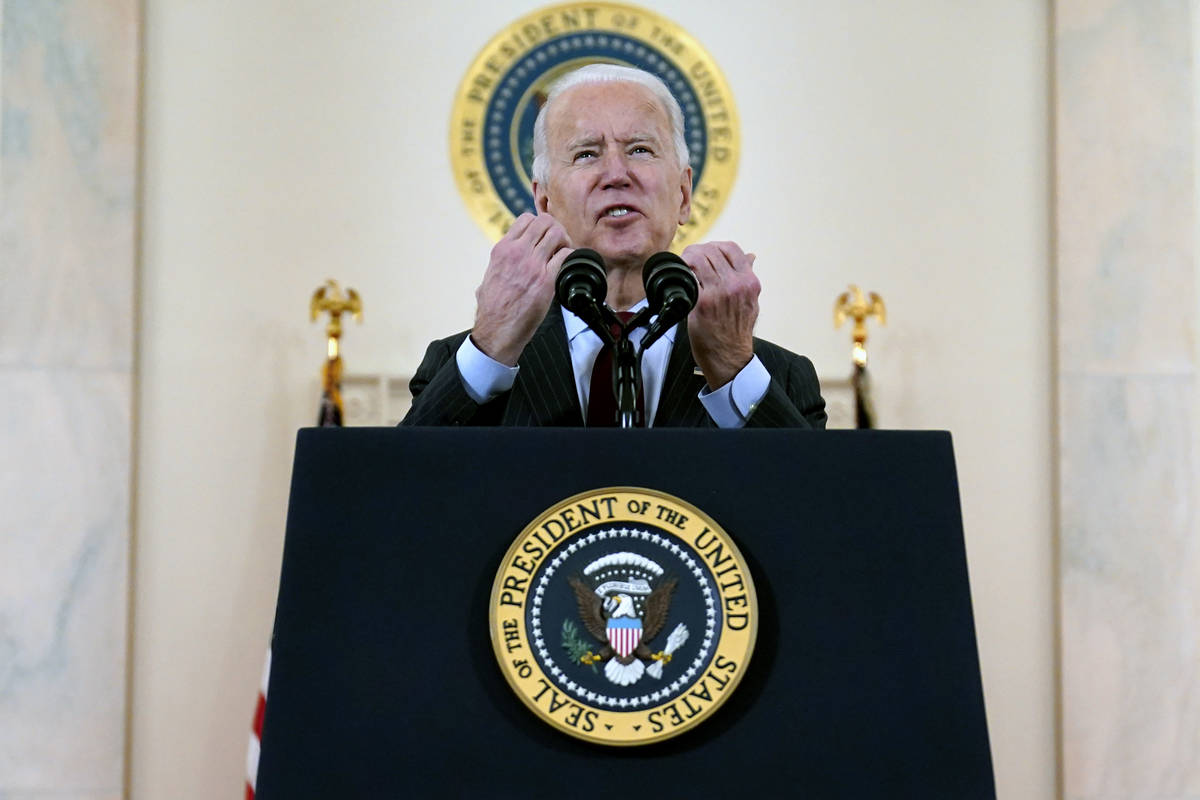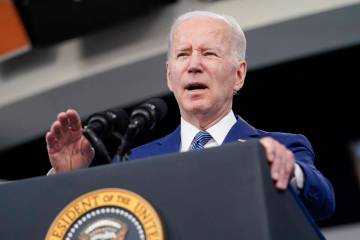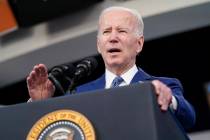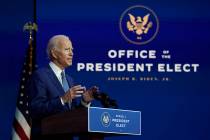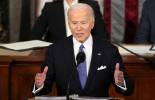RICHARD A. EPSTEIN: Joe Biden goes all in
The era of good feelings in the Biden administration began with his inaugural address on Jan. 20. President Joe Biden spoke of “unity” and of “bringing America together”in order to deal with, “anger, resentment, hatred, extremism, lawlessness, violence, disease, joblessness and hopelessness.”
It ended hours later when Biden issued his first executive order that canceled the permit for the Keystone XL pipeline and charted in the name of “science” a new regime for environmental regulation. Biden had prepared this order in advance, without any input from either house of Congress, any federal agency, state, industry or labor group.
It is an axiom of political and management theory to seek buy-in from multiple participants before making major institutional decisions. The rule applies to private firms and government operations. Autocratic decisions almost always overlook relevant information needed for sound choices. Years ago, Supreme Court Justice Oliver Wendell Holmes referred to the importance of maintaining competition in the “marketplace of ideas,” which today Biden has cut off with a raft of sweeping executive orders dealing with foreign relations and the Paris Accord, policies on gender equity, immigration, COVID and lots more.
Unilateralism, not unity, has been the order of the day.
There are, of course, limits as to what can be done through executive order to overhaul the economy. Major legislation is required for such key issues as taxation and labor relations. Yet Biden knows full well that he does not enjoy any electoral mandate to implement his most controversial programs. He was able to win the presidency in large part because Donald Trump was weighed down by the pandemic, which undermined his earlier economic achievements. And Trump engaged in reckless acts of self-destruction during the presidential campaign with his nonstop hectoring of Biden during the fateful first debate. He also compounded his bad judgment by railing incessantly about vote theft in Georgia, only to persuade enough of his supporters to stay home in two key senatorial elections. The two Democratic victories gave the Democrats wafer thin control of the Senate, as Vice President Kamala Harris can cast the tie-breaking vote needed to pass legislation.
Not a wise way to go.
It is worth thinking back to the great debate in the Senate over the Civil Rights Act of 1964, perhaps the 20th century’s most significant piece of legislation. At that time the rules on cloture in the Senate required a two-thirds majority (since reduced to 60 votes in 1975). But at no point did the dominant coalition of liberal Democrats and Republicans think of abolishing the cloture rule to allow them to prevail by a simple majority vote. Instead, they gutted it out senator by senator until they won by a vote of 71-29, with 27 Republicans and 44 Democrats for cloture.
That level of bipartisan support today is unthinkable on any major issue, for there is virtually no political overlap between the two parties.
In principle, a simple majority vote could eliminate cloture, as has now been done in connection with the appointment of executive branch officials, Supreme Court justices and all other federal judges. There is much to be said for that reform, for it would be intolerable to allow key Cabinet positions or seats on these courts to remain vacant until some global compromise is reached. But legislation is a different matter entirely because the daily business of the nation will not grind to a halt in the absence of yet another comprehensive statute, which might well do more harm than good.
The “unity” president now stands behind a proposal to weaken or undo the filibuster for key items of his agenda. One such notable attempt that failed was an effort to smuggle a $15 minimum wage law through the Senate as a budget reconciliation measure requiring only a simple majority vote. Undaunted, Senate Majority Leader Chuck Schumer is hard at work on another dubious strategy of attaching substantive legislation to budget reconciliation bills.
Other proposals would require a procession of senators to speak in order to keep the filibuster, thereby gumming up the rest of senatorial business. And the outright removal of the filibuster will invite Republicans to invoke a whole host of petty procedural maneuvers — normally waived by unanimous consent votes — to grind the Senate to a halt. Right now only two Democratic senators, Joe Manchin of West Virginia and Krysten Sinema of Arizona, block the transformation of the Senate rule for short-term process.
If those senators back off their opposition, the transformation will be enormous because on the table is legislation that seeks through dubious constitutional means to federalize the entire electoral system. It is far broader than the 1965 Voting Rights Act, which passed with bipartisan support. Also on the table are a massive $2 trillion infrastructure bill, ostensibly financed by higher corporate taxes; a misnamed Gender Equity Act; and a comprehensive wealth tax. I make no secret of my deep opposition to each and every one of these legislative programs that are an affront to our original constitutional scheme that featured a combination of these essential elements: safeguards against the concentration of power in a single branch of the federal government; the preservation of an active role of the states on matter of local import; and the strong protection afforded to both economic liberties and private property.
The entire progressive movement from Woodrow Wilson on has long regarded these “antiquated” devices as needless roadblocks that prevent enlightened public elected and administrative officials from using their expertise to achieve a fairer and just society. In the current temper of the times, the intellectual intolerance of the progressive left believes that the merits of its current agenda is beyond debate, which is why they are prepared to pull out all the stops to remake American society in its own image.
There has been a long and commendable legal tradition that says that major structural changes should be put into place only by supermajorities. Without that check, flawed legislation will proliferate, thereby further lowering the confidence that the public at large will have in the political branches of government.
Richard A. Epstein is a professor at the New York University School of Law, a senior fellow at the Hoover Institution and a distinguished service professor of law emeritus and senior lecturer at the University of Chicago. His Review-Journal column appears quarterly.



